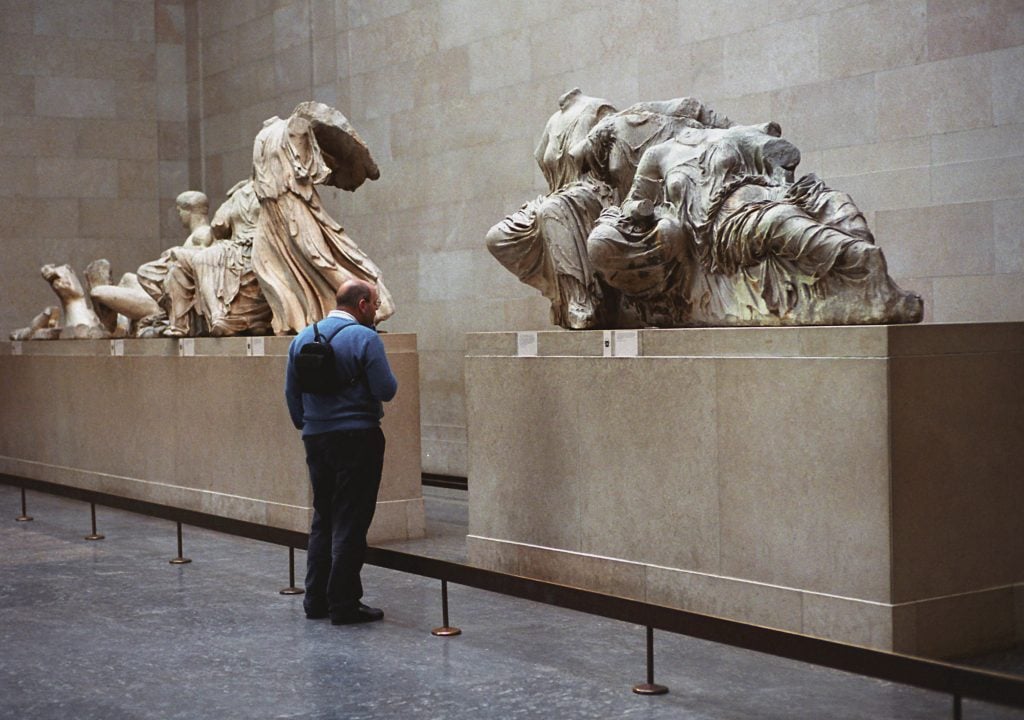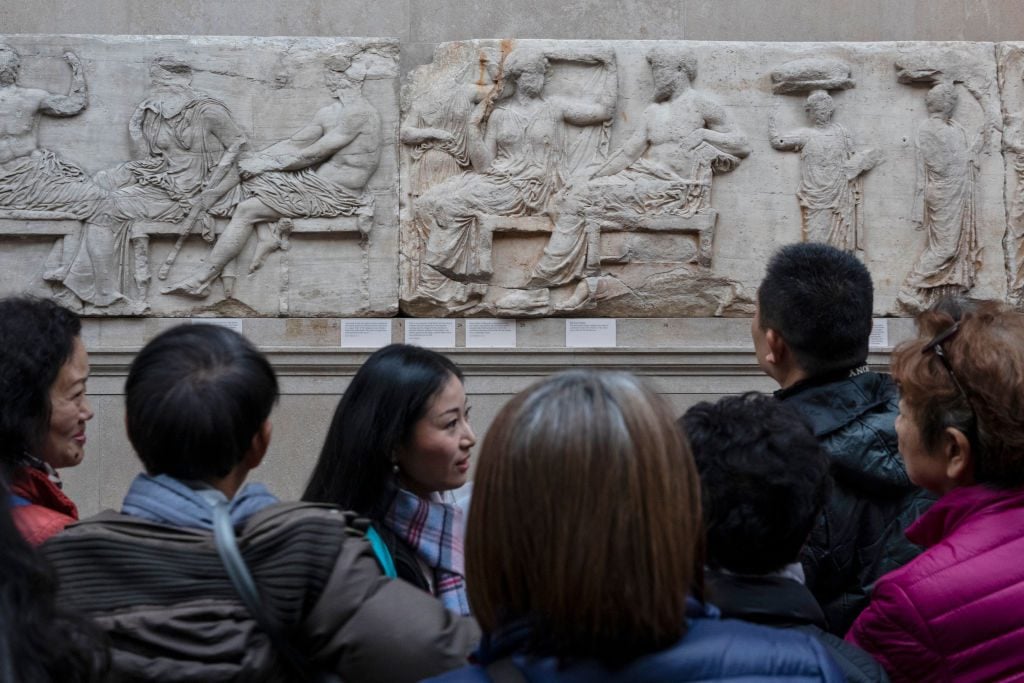Museums & Institutions
Amid Mounting Public Pressure, Greece and the U.K. Have Agreed to a New Round of Talks About a Possible Return of the Parthenon Marbles
The announcement comes just in time for International Museum Day.

The announcement comes just in time for International Museum Day.

Dorian Batycka

Greece may be one step closer to getting the Parthenon marbles back from the United Kingdom, as a new round of formal talks are set to begin on the prized artifacts taken by Lord Elgin in 1805.
On the eve of International Museum Day, celebrated on May 18, UNESCO announced that Greece and the United Kingdom will continue discussing a potential return of the ancient sculptures, which were deposited in the British Museum more than 200 years ago.
Discussions about the rightful ownership of the Parthenon marbles were announced by the Intergovernmental Committee for Promoting the Return of Cultural Property to its Countries of Origin or its Restitution in case of Illicit Appropriation, or ICPRCP, which opened its 23rd session in Paris this week. According to UNESCO, the meeting, offered on April 29 by the U.K., has been accepted by Greece and will be arranged “in due course.”
The sculptures—made between 447 B.C.E. and 432 B.C.E.—consist of a frieze that depicts the procession of a Panathenaic festival commemorating the birthday of the Greek goddess Athena, alongside a number of metopes and figures from the temple’s pediments. In total, the British Museum owns 15 metopes, 17 pedimental figures, and a 247-foot section of the original frieze, all of which the institution maintains were acquired legally during a time in which Greece was under Ottoman rule.
Greece’s efforts to repatriate the objects has been ongoing since 1983, but in recent years efforts have ramped up, in part fueled by shifts in public opinion.

Sections of the Parthenon marbles at the British Museum in London. Photo: Dan Kitwood/Getty Images.
Greece’s prime minister, Kyriakos Mitsotakis, raised the issue of the sculptures during a meeting with his British counterpart, Boris Johnson, in London last November. However, the formal position of the U.K. government is that the sculptures are owned by the British Museum, which operates under a board of trustees independent from government oversight, a rationale that has been dubbed the “Bloomsbury defense.”
As Lord Stephen Parkinson, who currently serves as the Under-Secretary of State, Department for Digital, Culture, Media and Sport in the U.K., reported to Parliament in February:
“Our prime minister emphasized the U.K.’s longstanding position that this is a matter for the trustees of the British Museum, who legally own the sculptures. The British Museum operates independently of the Government, meaning that decisions relating to the care and management of its collections are a matter for its trustees. The Government fully supports the position taken by the trustees.”
Greece’s culture minister, Lina G. Mendoni, said in an April 22 press conference, cited in the Greek City Times, that the British Museum’s policy regarding the marbles was counterproductive, claiming that it clings to an “anachronistic attitude of complete denial, recycling myths, sophistries, and even falsehoods.”
While maintaining Greece’s constitutional and moral obligation to pursue the sculptures’ permanent return, Mendoni doubled down on a previous offer to pursue a creative solution, proposing a series of intergovernmental loans and temporary exhibitions that could fill the resulting gap in the British Museum’s famed Duveen Gallery. Italy has taken Greece up on a similar offer, in exchange for the return of a piece of the Parthenon frieze on long-term loan.
Amid a flurry of international repatriations of contested artifacts from various ancient sites and colonial territories, the U.K. has held publicly firm on returning the Parthenon sculptures. The British Museum has said that a 1963 Act of Parliament prohibits the deaccession of items in the collection, though the law’s viability has recently been challenged. A spokesperson noted that “the British Museum is always willing to consider requests to borrow any objects from the collection.”
A spokesperson from the U.K. ministry of culture added that: “The U.K. has a longstanding position on this issue that has not changed—the Parthenon Sculptures were acquired legally in accordance with the law at the time. The British Museum operates independently of the government and free from political interference. All decisions relating to collections are taken by the Museum’s trustees.”
Artnet News reached out for further comment from from the Greek ministry of culture, but as of publishing time has not heard back.
Thursday, May 19: This article was amended to reflect comments received by the U.K. ministry of culture.